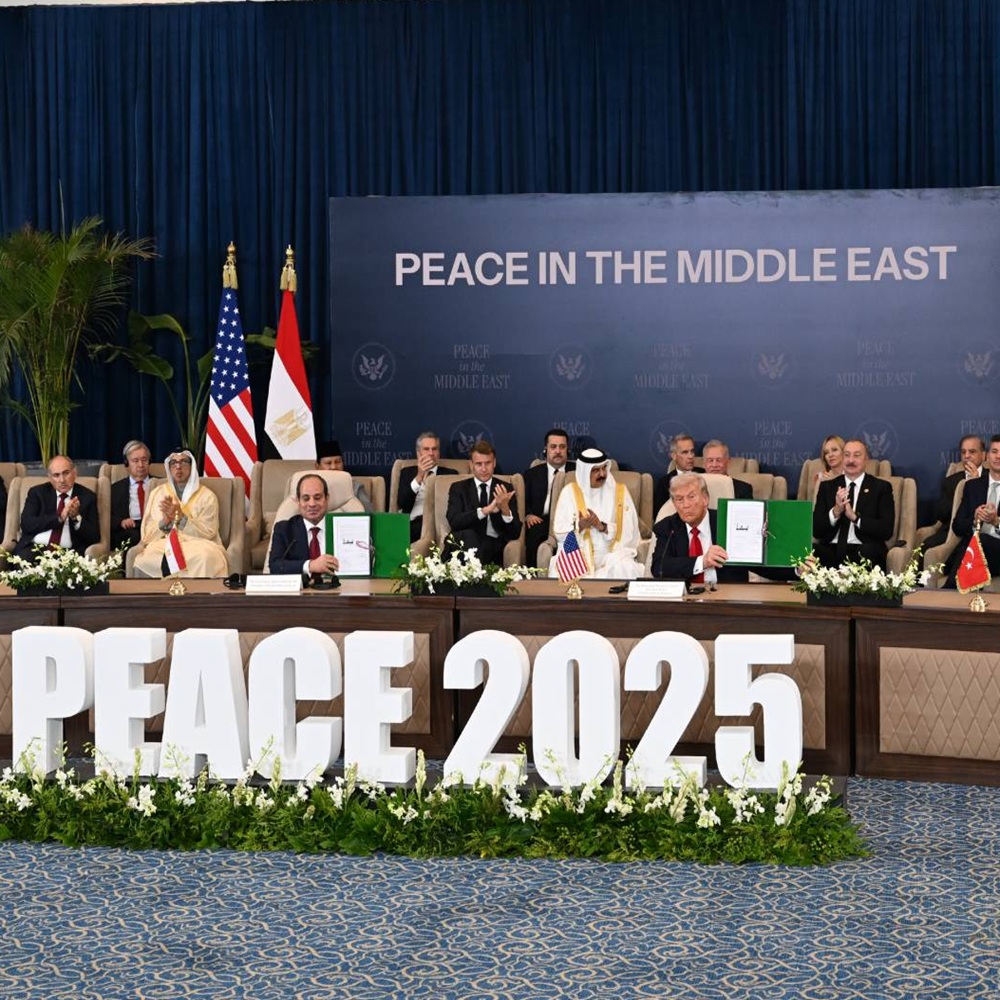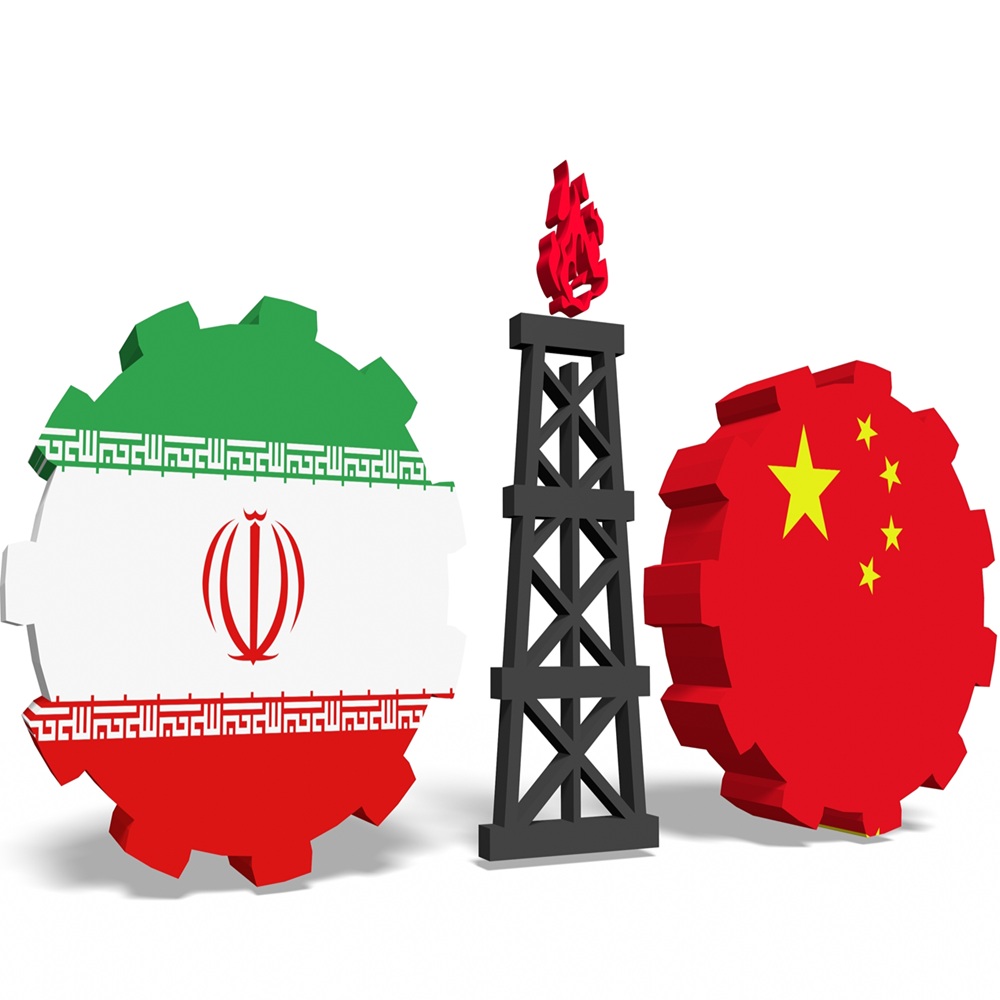Israel/Palestine and Canada’s Empty Support for International law
by Alex Neve
Abstract Canada has long maintained that international law must be central to resolution of the Israeli/Palestinian conflict. But has there been appropriate follow-through when international law has been violated? This policy brief examines Canada's positions and, importantly, actions, in the face of violations of international law by the Israeli government during its military offensive on Gaza following the 7 October 2023 attacks in southern Israel by Hamas and other armed Palestinian groups. The analysis makes it clear that Canada has rarely condemned those violations, let alone imposed sanctions or other consequences for them.Keywordshuman rights, Israel, Palestine, Gaza, Canada, Canadian foreign policy, international law, International Court of Justice, International Criminal Court, international humanitarian law Professed respect for international law “Israel has a right under international law to take the necessary measures, in accordance with human rights and international humanitarian law, to protect the security of its citizens from attacks by terrorist groups.” In many respects, this statement—taken from the section detailing “Support for Israel and its Security” in Global Affairs Canada's overview of “Canadian policy on key issues in the Israeli-Palestinian conflict”1—captures what is right in principle, but so terribly wrong in practice, when it comes to Canada's foreign policy regarding Israel and Palestine. As it should be, international law is lifted up and given a spotlight. Canada's position is grounded in an expectation that international human rights and international humanitarian law will be respected. But what the statement does not convey is that there is rarely an appropriate response by the Canadian government when it becomes clear that actions taken by Israel—particularly the Israel Defense Forces—to protect the security of its citizens consistently amount to grave, widespread, and systematic violations of both international human rights and international humanitarian law. International law and human rights also feature prominently in other key elements of Canada's policy regarding the conflict. Canada recognizes the “Palestinian right to self-determination.” The rights of Palestinian refugees are to be respected, “in accordance with international law.” Canada notes that the “Fourth Geneva Convention applies in the occupied territories” and consequently that Israeli settlements are in violation of that convention, as is the Israeli government's construction of the barrier inside the West Bank and East Jerusalem. Failure to uphold international law This is all good, in principle. But how does Canada react to the fact that the Palestinian right to self-determination and the rights of Palestinian refugees have undeniably been abrogated for decades? And what is Canada's response to the defiant expansion of the Geneva Convention–violating settlements throughout the West Bank and East Jerusalem? Rather than mount a robust defence (or any defence, for that matter) of the international legal principles at stake, Canada's policy more or less goes quiet at this point. There is no condemnation of the breaches of international law, and consideration of the possible implications under Canadian law is reluctant at best, with a bare minimum of legal, trade, or other consequences for these blatantly unlawful actions. The disconnect between rhetorical flourishes of support for the professed importance of international law but the failure and unwillingness to champion it when it is breached has, unfortunately but perhaps not surprisingly, dominated the key aspects of Canada's response to Israel's unrelenting assault on Gaza following the brutal attacks launched by Hamas and other armed Palestinian groups in southern Israel on 7 October 2023. It was evident from the outset. October 7th, Gaza, and Canada's empty resort to international law Reacting to the horror of the October 7th attack, Canada, like the United States, Australia, New Zealand, and many of its allies in Western Europe, almost immediately referenced the fact that Israel had a right to defend itself. Prime Minister Justin Trudeau's first statement, on October 8th, noted that Canada “reaffirm[ed] its support for Israel's right to defend itself.”2 But what, as a matter of international law, did that actually mean? The question as to whether Israel as a nation has the right to defend itself from attack is dictated by Article 51 of the United Nations (UN) Charter, International Court of Justice (ICJ) jurisprudence, and other public international law sources. As Marko Milanovic, professor of public international law at the University of Reading School of Law notes, “[M]any who think there is a single, clearly correct answer to the question whether Israel has a right to self-defence do so simply because the answer fits their prior narratives and worldviews.” Milanovic lays out the complexity and uncertainty in considerable detail and concludes that “the jus ad bellum is indeterminate on the question of whether non-state actors, whose conduct is not attributable to a state, can commit armed attacks in the sense of Article 51 of the Charter.”3 With the threshold question of whether an attack carried out by an armed group such as Hamas constitutes an armed attack of the nature that would trigger application of Article 51 being at best indeterminate, so too is the question as to whether a right of self-defence arises. As such, the Canadian government's simple assertion, without any further expansion or discussion, is clearly not without debate. Offering no qualification or explanation alongside that assertion, on a matter that is unsettled and complex within international law, is problematic. Article 51 states: “Nothing in the present Charter shall impair the inherent right of individual or collective self-defence if an armed attack occurs against a Member of the United Nations[.]”4 What emerges from a review of applicable international law, however, are differing views as to whether, and to what extent, a nation's right under Article 51 to resort to armed force in response to an attack—in other words, to go to war as a means of self-defence—arises when the attack is carried out by another state, not when the perpetrator is a non-state actor or armed group such as Hamas or the other Palestinian armed groups responsible for the October 7th attacks, operating within territory that is controlled by the state concerned. That is reflected in the conclusion of the ICJ in its 2004 Advisory Opinion, Legal Consequences of the Construction of a Wall in the Occupied Palestinian Territory: Article 51 of the Charter thus recognizes the existence of an inherent right of self-defence in the case of armed attack by one State against another State. However, Israel does not claim that the attacks against it are imputable to a foreign State. The Court also notes that Israel exercises control in the Occupied Palestinian Territory and that, as Israel itself states, the threat which it regards as justifying the construction of the wall originates within, and not outside, that territory. The situation is thus different from that contemplated by Security Council resolutions 1368 (2001) and 1373 (200 l), and therefore Israel could not in any event invoke those resolutions in support of its claim to be exercising a right of self-defence. Consequently, the Court concludes that Article 51 of the Charter has no relevance in this case.5 Having determined that Article 51 was not relevant, the Court also went on to consider whether Israel could more broadly rely on the customary international legal principle of a “state of necessity” to justify construction of the wall. The Court agreed that Israel had “the right, and indeed the duty, to respond in order to protect the life of its citizens” but noted that “measures taken are bound nonetheless to remain in conformity with applicable international law.”6 This is essentially where Canada's stated policy lands as well. For example, the now former prime minister's October 8th statement, referenced above, goes on to qualify that Israel's right to defend itself must be exercised “in accordance with international law.” This, in turn, echoes the numerous references to the need to respect international law noted above, which are scattered throughout Canada's overall Israel/Palestine policy—established long before October 7th. The phrase “in accordance with international law” has been repeated consistently in written statements, social media posts, and press comments by the prime minister,7 the minister of foreign affairs,8 and other ministers9 at various stages of the current conflict. But we do not find any further explanation as to what that entails-for instance, that regardless of whether or not a right of self-defence to an armed attack exists in these circumstances and legally justifies Israel launching a war against Hamas, fundamental principles from international humanitarian law, such as the requirements of necessity and proportionality, nevertheless always apply. That failure to have clearly acknowledged the applicable international humanitarian law framework is particularly problematic, because the evidence that those legal obligations have been systematically and gravely violated, to the extent of undeniably constituting war crimes, has become incontrovertible. Yet as Israel's full-scale assault on Gaza was launched and expanded—and as reports from the UN,10 humanitarian agencies,11 international12 and national13 human rights organizations, local human rights monitors,14and journalists15 made it clear that massive human rights violations and breaches of international humanitarian law were occurring—nothing more was said. Canada did not move from stating that international law must be respected to stating the obvious—that it was well-established that this was not happening. The Canadian government refused to criticize Israel for breaches of international law, let alone press for accountability and consequences for the violations. Canada and the ICJ's Genocide Convention case Nowhere has this been more apparent, or more consequential, than in Canada's response to announcements and rulings from the two international courts that have a key role in upholding international law in situations such as the Israeli-Palestinian conflict: the International Court of Justice and the International Criminal Court (ICC). Canada is often regarded as one of the world's most reliable champions of international courts. As such, its failure to show the expected support at this time has been widely noted with concern. The ICJ is actively engaged with the conflict through two separate cases. On 29 December 2023 South Africa launched proceedings16 against Israel, alleging violations of the Convention on the Prevention and Punishment of the Crime of Genocide (Genocide Convention) with respect to Israel's actions in Gaza. Given the gravity and urgency of the situation on the ground in Gaza, South Africa has applied to the Court on four separate occasions,17 seeking orders for interim provisional measures while the case proceeds. The Court consequently indicated a range of provisional measures in various orders18 issued between January and May 2024. The Court's provisional measures have been grounded in a finding that “at least some of the rights claimed by South Africa under the Genocide Convention and for which it was seeking protection were plausible, namely the right of the Palestinians in Gaza to be protected from acts of genocide and related prohibited acts mentioned in Article III, and the right of South Africa to seek Israel's compliance with the latter's obligations under that Convention.”19 The legal semantics of that ruling are nuanced, but nonetheless significant and with very real consequences. The Court has not reached any conclusion as to whether genocide has occurred in Gaza—or even whether it has possibly or potentially occurred—nor would it be expected to at this early stage of the case. But it is a clear statement that the Court considers the rights protected under the Genocide Convention to be plausibly pertinent to Israel's military operations in Gaza. Drawing on the Court's conclusion, many commentators,20 including legal experts and human rights organizations, now regularly reference plausible, potential, or prima facie genocide in Gaza. The Court's final ruling on whether Israel has in fact breached its obligations under the Genocide Convention is still some way off—likely late 2025, at the earliest. Among the provisional measures indicated by the Court to date are orders that Israel prevent the commission of all acts of genocide, prevent and punish incitement to genocide, enact immediate and effective measures to enable the provision of urgently needed basic services and humanitarian assistance in Gaza, and immediately halt its military offensive and any other action in Rafah that may inflict on Palestinians in Gaza conditions of life that could bring about their physical destruction as a group, in whole or in part. Canada's response to the ICJ rulings has been, at worst, tepid and incoherent, and at best, only supportive when consistent with Canada's already established positions. Following the first provisional measures indicated by the Court in January, Canada's foreign affairs minister, Mélanie Joly, issued a statement expressing support for the ICJ's “critical role … in upholding the international rules-based order,” but stressed that this support did “not mean that [Canada accepted] the premise of the case brought by South Africa.”21 There was not a word from the Canadian government calling on Israel to comply with the Court's order, which is what would have been expected from a self-declared champion of the Court. The response four months later to the Court's provisional measures concerning Rafah was stronger. Prime Minister Trudeau reiterated what was by then Canada's established position, calling for “no more military operations in Rafah by Israel, and certainly no escalation of military operations in Rafah.” The prime minister also underscored that the “ICJ's proposals are binding and we expect everyone to follow them as a matter of international law.”22 However, as is well established, Israel did not comply with the Court's ruling with respect to Rafah, and Canada has issued no express condemnation, let alone imposed any consequences, for that disregard of international law. Canada and the ICJ's advisory opinion The second ICJ case dealing with Israel-Palestine is an advisory opinion requested in January 2023,23 following a December 2022 UN General Assembly resolution seeking the Court's views on the legal consequences of Israeli practices in the Occupied Palestinian Territory (OPT), including East Jerusalem. The Court's Advisory Opinion24 was issued on 19 July 2024. The Court was unequivocal in concluding that “the sustained abuse by Israel of its position as an occupying Power, through annexation and an assertion of permanent control over the Occupied Palestinian Territory and continued frustration of the right of the Palestinian people to self-determination, violates fundamental principles of international law and renders Israel's presence in the Occupied Palestinian Territory unlawful.”25 Notably, the ICJ specifically addresses the question of the legal consequences of Israel's unlawful presence in the OPT for third states, which would obviously include Canada, and concludes that “all States are under an obligation not to recognize as legal the situation arising from the unlawful presence of Israel in the Occupied Palestinian Territory. They are also under an obligation not to render aid or assistance in maintaining the situation created by Israel's illegal presence in the Occupied Palestinian Territory.”26 This leads to a consideration of Canada's stance before and after the ICJ Advisory Opinion. Canada filed a written submission27 seven months in advance of the hearing, arguing that the Court should use its discretion and decline the General Assembly's request to issue an advisory opinion. Canada also initially requested an opportunity to make oral submissions during the hearing, and was one of fifty-four states and multilateral organizations slated to do so.28 However, as the hearing got underway on 19 February 2024, Canada withdrew its request to make an oral presentation29 and chose to rely solely on the earlier written submission—namely, that the Court should decline to issue an advisory opinion. The explanation offered for withdrawing from the oral hearing was that the government's position had not changed from the time of making its written submission. Apparently, that position was unchanged even though external circumstances had changed dramatically. After all, Canada's position had been formulated seven months earlier—before the October 7th attack in Israel, the subsequent Israeli offensive in Gaza, and the 26 January 2024 ICJ ruling on provisional measures in the case brought by South Africa under the Genocide Convention. Canada's response after the Advisory Opinion was issued was certainly lacking. The immediate reaction was limited to a statement that the government had “taken note” of the Advisory Opinion, stressing that it was “nonbinding.”30 Two weeks later, a passing reference to the Advisory Opinion appeared in a joint statement from Prime Minister Trudeau and the prime ministers of Australia and New Zealand reiterating their call for a ceasefire and expressing concern about the mounting hostilities between Israel and Hezbollah. The statement generically called on Israel “to respond substantively to the ICJ's advisory opinion,”31 but offered no examples as to what that substantive response should entail. Canada's response to the advisory opinion A resolution came before the UN General Assembly on 18 September 2024, following up on the ICJ Advisory Opinion, which had, after all. initially been sought by the General Assembly. Among other provisions, the resolution “[w]elcomes the Advisory opinion … [and] [d]emands that Israel comply without delay with all its legal obligations under international law, including as stipulated by the International Court of Justice.”32 The resolution passed with 124 votes in favour, 14 against, and 43 abstentions.33 Canada was one of the countries to abstain. Many of Canada's close allies, such as France, Ireland, Norway, and New Zealand, supported the resolution, while many others, including Australia, Germany, the Netherlands, and the United Kingdom, joined Canada in abstaining. Israel and the United States were among the fourteen states that opposed the resolution. In a statement, the government explained its decision to abstain rather than support the resolution, citing that it did not reference the “need to end terrorism, for which Israel has serious and legitimate security concerns” and that it contained “language that aligns with Boycott Divestment Sanctions, which Canada firmly opposes.”34 To a certain extent, the decision to abstain rather than oppose (which has tended to be Canada's voting record with UN General Assembly resolutions related to Israel/Palestine)35 the resolution may be seen as a small step forward. It was, however, sharply criticized by Canadian groups supportive of Israel.36 There has yet to be any acknowledgement of the steps that Canada is obliged to take—and therefore that it intends to take—in response to the ICJ's identification of a responsibility incumbent on third states not to “render aid or assistance in maintaining the situation created by Israel's illegal presence in the Occupied Palestinian Territory.” What implications might there be, for instance, for Canadian trade policy, the charitable status of Canadian organizations, the involvement of Canadians in real estate deals in the OPT, or the possibility that the actions of some Canadians with respect to settlements in the OPT might even be tantamount to criminal liability for war crimes? Canada designated Hamas a “terrorist entity” under Canadian law in 2002.37 Numerous other Palestinian armed groups, such as Palestinian Islamic Jihad and the Al-Aqsa Martyrs Brigades, have similarly been designated. Since the October 7th attack, there have been four rounds of sanctions, targeting thirty-nine individuals, including Hamas leadership.38 Canada has been slower to take action against individuals and groups responsible for violence and human rights abuses against Palestinians. After considerable pressure, in May, June, and September of 2024, the government imposed three rounds of sanctions against a total of fifteen individuals and seven groups deemed responsible for “extremist settler violence against Palestinian civilians in the West Bank.”39 These are the first ever sanctions of that nature. However, no sanctions have been imposed against Israeli political leaders who have been widely condemned for supporting, facilitating, and inciting that extremist settler violence—notably Finance Minister Bezalel Smotrich and Minister of Security Itamar Ben-Gvir.40 There have been repeated calls for Canada to impose a comprehensive arms embargo on any weapons, including parts and components, transferred either directly to Israel or indirectly through third countries, most notably the United States. While the government announced in January that no new export permits would be authorized, and later cancelled thirty existing permits, the ban is still far from comprehensive.41 For instance, Canadian-made parts are sold to companies in the United States, where they are used in the assembly of F-35 fighter jets destined for Israel. The Canadian Commercial Corporation, a Canadian Crown Corporation acting on behalf of General Dynamics Ordnance and Tactical Systems—Canada, also remains under contract to provide the US Department of Defense with artillery propellants that will be supplied to Israel.42 Reports indicate that C$95 million worth of military goods could be exported from Canada to Israel through to the end of 2025.43 It is also worth noting that the Canada–Israel Free Trade Agreement, which came into force in 1997 and was updated in 2019, extends its coverage to the “territory where [Israel's] customs laws are applied.”44 This means the trade deal includes Israeli settlements in the West Bank and East Jerusalem, which Canada considers to be unlawful. There was a concerted push by legal experts and human rights groups to exclude those unlawful settlements45—which, after all, constitute war crimes under international law—from the gamut of the trade deal when it was updated, but the government refused to make that change. Canada and the International Criminal Court Meanwhile, an announcement from Karim Khan, the chief prosecutor of the ICC, on 29 May 2024, raised further concerns about Canadian double standards regarding international law and institutions when it comes to Israel. Khan indicated that, as part of an ongoing investigation launched over three years ago, he was seeking arrest warrants for five key Israeli and Hamas leaders, including Israel's prime minister, Benjamin Netanyahu, and its then minister of defence, Yoav Gallant, on war crimes and crimes against humanity charges in connection with the October 7th attacks in southern Israel and the aftermath in Gaza.46 Canada, famously, was an ardent champion of the establishment of the ICC in 1998.47 Canada's foreign affairs minister at the time, Lloyd Axworthy, played a key leadership role, and a Canadian, Philippe Kirsch, served as the first ICC president. However, rather than express support and offer a commitment to cooperate with Khan and the Court as the case proceeds, Prime Minister Trudeau, Deputy Prime Minister Chrystia Freeland, and Foreign Affairs Minister Joly all pilloried the prosecutor for having sought the arrest warrants against Netanyahu and Gallant, decrying what they called an unhelpful “equivalence” between Hamas and the Israeli government.48 The government's position was criticized in an open letter to the prime minister from over 375 Canadian law professors, lawyers, legal scholars, academics, civil society, faith and labour movement leaders, and former diplomats and parliamentarians, including Axworthy and two former ambassadors to the United Nations, Allan Rock and Rosemary McCarney. The letter notes: The principles of equal treatment and access to justice in the field of international criminal justice do not, by any measure, amount to an equivalence of the nature you have decried. No country, no armed group, no corporation and no individual can be allowed to stand above or apart from the law. Nothing undermines justice more—at a national or international level—than double standards and exceptionalism. This commitment must be at the core of Canada's ICC position and foreign policy.49 Canada was among ninety-three states to subsequently endorse a joint statement on 14 June 2024 reaffirming that ICC officials and staff must be able to carry out their work “without intimidation.”50 While the statement does not explicitly mention the Israel/Palestine case, it is widely understood to be a response to threats that had been levelled at the Court by supporters of Israel, including the US House of Representatives.51 Beyond that, Canada's position regarding the application for the arrest warrants remained the same. On 21 November 2024, the ICC issued arrest warrants for Netanyahu, Gallant, and Mohammed Diab Ibrahim Al-Masri, more commonly known as Deif, commander-in-chief of the military wing of the Islamic Resistance Movement Hamas (known as the Al-Qassam Brigades). Warrants had initially been sought as well for Yahya Sinwar, then head of Hamas in the Gaza Strip, and Ismail Haniyeh, former head of the Hamas political bureau, but those applications were later withdrawn following evidence confirming their deaths.52 The arrest warrant issued for Deif was cancelled on 26 February 2025 after his death was also confirmed.53 In reaction to the news of the warrants against Netanyahu and Gallant being issued, Prime Minister Trudeau stated that Canada “will abide by all the regulations and rulings of the international courts.”54 Minister Joly, while declining to answer the “speculative” question about executing the Netanyahu and Gallant warrants if circumstances arose, confirmed that Canada must “abide by its treaty obligations.”55 While there is no explicit commitment to execute the warrants, the generic affirmations that Canada will abide by all rulings of the international courts, and by its treaty obligations, point in that direction. It is not as clear a statement of support as was made by many other governments, but at least it moves away from criticizing the prosecutor. Disregarding international law in Israel/Palestine weakens it everywhere And in the current volatile global context, with the United States, Russia, and China now regularly and flagrantly violating international law and disregarding—often contemptuously—international courts and human rights bodies, the need to vigorously and scrupulously reinforce international law has become imperative. The bottom line is that it is not enough, and is, in fact, dangerous hypocrisy, for the Canadian government to laud the important role of international law and international legal institutions in resolving the Israeli-Palestinian conflict if those legal standards and bodies are ignored, abandoned, or, at best, given lukewarm support by Canada when breached or disrespected. It is appropriate and necessary for international law to be at the heart of Canada's foreign policy with respect to the conflict. But that requires demonstrating, with decisive words and concrete measures, both internationally and nationally, that Canada means what it says in standing up for the rules-based international order that it has helped to shape since the 1940s. To do otherwise weakens the international legal framework at a time when it needs to be stronger than ever. Those consequences reverberate far beyond Israel and Palestine alone. Declaration of conflicting interestsThe author declared no potential conflicts of interest with respect to the research, authorship, and/or publication of this article.FundingThe author received no financial support for the research, authorship, and/or publication of this article.Notes1. Global Affairs Canada (GAC), “Canadian policy on key issues in the Israeli-Palestinian conflict,” https://www.international.gc.ca/world-monde/international_relations-relations_internationales/mena-moan/israeli-palestinian_policy-politique_israelo-palestinien.aspx?lang=eng (accessed 10 April 2025).2. Prime Minister of Canada, “Statement by the Prime Minister on attacks against Israel,” 8 October 2023, https://www.pm.gc.ca/en/news/statements/2023/10/08/statement-prime-minister-trudeau-attacks-against-israel (accessed 10 April 2025).3. Marko Milanovic, “Does Israel have the right to defend itself?,” EJIL: Talk!, 14 November 2023, https://www.ejiltalk.org/does-israel-have-the-right-to-defend-itself/ (accessed 22 April 2025).4. United Nations (UN), Charter of the United Nations, 26 June 1945, Article 51, https://www.un.org/en/about-us/un-charter/full-text (accessed 10 April 2025).5. International Court of Justice (ICJ), Legal Consequences of the Construction of a Wall in the Occupied Palestinian Territory, Advisory Opinion, ICJ Reports 2004, paragraph 139, https://www.icj-cij.org/sites/default/files/case-related/131/131-20040709-ADV-01-00-EN.pdf (accessed 20 April 2025).6. Ibid., paragraph 141.7. Prime Minister of Canada, “Prime Minister Justin Trudeau speaks with Israel War Cabinet member Minister Benny Gantz, 16 November 2023,” https://www.pm.gc.ca/en/news/readouts/2023/11/16/prime-minister-justin-trudeau-speaks-israel-war-cabinet-member-minister (accessed 10 April 2025).8. GAC, “Statement by Minister Joly on the International Court of Justice's decision on South Africa's request for provisional measures in its case against Israel,” 26 January 2024, https://www.canada.ca/en/global-affairs/news/2024/01/statement-by-minister-joly-on-the-international-court-of-justices-decision-on-south-africas-request-for-provisional-measures-in-its-case-against-is.html (accessed 10 April 2025).9. Bill Blair (@BillBlair), “Canada continues to support Israel's right to defend itself in accordance with international law, following the brutal terror attack by Hamas on October 7. Hamas must immediately release those being held hostage,” X, 4 November 2023, https://x.com/BillBlair/status/1720983221398069565 (accessed 10 April 2025).10. UN Human Rights Council, The Independent International Commission of Inquiry on the Occupied Palestinian Territory, including East Jerusalem, and Israel, https://www.ohchr.org/en/hr-bodies/hrc/co-israel/index (accessed 10 April 2025).11. International Committee of the Red Cross (ICRC), “ICRC president tells Gaza forum: civilians must be protected, hostages must be released unharmed,” 9 November 2023, https://www.icrc.org/en/document/icrc-president-tells-paris-conference-gaza-immediate-imperative-is-to-save-lives (accessed 10 April 2025).12. Amnesty International, “Damning evidence of war crimes as Israeli attacks wipe out entire families in Gaza,” 20 October 2023, https://www.amnesty.org/en/latest/news/2023/10/damning-evidence-of-war-crimes-as-israeli-attacks-wipe-out-entire-families-in-gaza/ (accessed 10 April 2025).13. B’Tselem—The Israeli Information Center for Human Rights in the Occupied Territories, “Manufacturing famine: Israel is committing the war crime of starvation in the Gaza Strip,” April 2024, https://www.btselem.org/publications/202404_manufacturing_famine (accessed 10 April 2025).14. Euro-Med Human Rights Monitor, “About 10 percent of the Gaza Strip's population killed, injured, or missing due to the Israeli genocide,” 25 July 2024, https://euromedmonitor.org/en/article/6420/About-10-percent-of-the-Gaza-Strip%E2%80%99s-population-killed,-injured,-or-missing-due-to-the-Israeli-genocide (accessed 10 April 2025).15. Bethan McKernan et al., “Palestinian prisoners describe systemic abuse in Israel's jails,” The Guardian, 5 August 2024, https://www.theguardian.com/world/article/2024/aug/05/palestinian-prisoners-describe-widespread-abuse-in-israels-jails (accessed 10 April 2025).16. ICJ, Application Instituting Proceedings Containing a Request for the Indication of Provisional Measures, Application of the Convention on the Prevention and Punishment of the Crime of Genocide in the Gaza Strip (South Africa v. Israel), 29 December 2023, https://www.icj-cij.org/sites/default/files/case-related/192/192-20231228-app-01-00-en.pdf (accessed 10 April 2025).17. ICJ, Application of the Convention on the Prevention and Punishment of the Crime of Genocide in the Gaza Strip (South Africa v. Israel) – Provisional Measures, https://www.icj-cij.org/case/192/provisional-measures (accessed 10 April 2025).18. ICJ, Application of the Convention on the Prevention and Punishment of the Crime of Genocide in the Gaza Strip (South Africa v. Israel) – Orders, https://www.icj-cij.org/case/192/orders (accessed 10 April 2025).19. ICJ, Application of the Convention on the Prevention and Punishment of the Crime of Genocide in the Gaza Strip (South Africa v. Israel) – Order, 24 May 2024, paragraph 32, https://www.icj-cij.org/sites/default/files/case-related/192/192-20240524-ord-01-00-en.pdf (accessed 10 April 2025).20. Alexandre Skander Galand and Wim Muller, “The ICJ's findings on plausible genocide in Gaza and its implications for the International Criminal Court, Opinio Juris,” 5 April 2024, https://opiniojuris.org/2024/04/05/the-icjs-findings-on-plausible-genocide-in-gaza-and-its-implications-for-the-international-criminal-court/ (accessed 10 April 2025).21. GAC, “Statement by Minister Joly,” 26 January 2024.22. Darren Major, “Trudeau says Israel needs to follow ICJ ruling and halt operations in Rafah,” CBC News, 24 May 2024, https://www.cbc.ca/news/politics/trudeau-icj-decision-rafah-1.7214231 (accessed 10 April 2025).23. ICJ, Request for Advisory Opinion pursuant to General Assembly Resolution 77/247 of 30 December 2022: Legal Consequences Arising from the Policies and Practices of Israel in the Occupied Palestinian Territory, including East Jerusalem, 17 January 2023, https://www.icj-cij.org/sites/default/files/case-related/186/186-20230117-REQ-01-00-EN.pdf (accessed 10 April 2025).24. ICJ, Advisory Opinion, Legal Consequences Arising from the Policies and Practices of Israel in the Occupied Palestinian Territory, including East Jerusalem, 19 July 2024, https://www.icj-cij.org/sites/default/files/case-related/186/186-20240719-adv-01-00-en.pdf (accessed 10 April 2025).25. Ibid., paragraph 261.26. Ibid., paragraph 279.27. ICJ, Request by the United Nations General Assembly for an Advisory Opinion on the Question of the “Legal Consequences Arising from the Policies and Practices of Israel in the Occupied Palestinian Territory, including East Jerusalem,” Written Statement of the Government of Canada, 14 July 2023, https://www.icj-cij.org/sites/default/files/case-related/186/186-20230724-wri-01-00-en.pdf (accessed 10 April 2025).28. ICJ, Legal Consequences arising from the Policies and Practices of Israel in the Occupied Palestinian Territory, including East Jerusalem (Request for Advisory Opinion), Public hearings to be held from Monday 19 to Monday 26 February 2024, Press Release, 9 February 2024, https://www.icj-cij.org/sites/default/files/case-related/186/186-20240209-pre-01-00-en.pdf (accessed 10 April 2025).29. Justice for All Canada, “Canada's absence from ICJ hearings is a blow to Palestinian justice,” 20 February 2024, https://www.justiceforallcanada.org/icj-canada-withdrawal-feb20-2024.html (accessed 10 April 2025).30. The Canadian Press, “Ottawa says it has ‘taken note’ of UN court call for end to Israeli settlements,” The Globe and Mail, 19 July 2024, https://www.theglobeandmail.com/canada/article-ottawa-says-it-has-taken-note-of-un-court-call-for-end-to-israeli/ (accessed 10 April 2025).31. Prime Minister of Canada, “Joint statement by the prime ministers of Australia, Canada and New Zealand,” 26 July 2024, https://www.pm.gc.ca/en/news/statements/2024/07/26/joint-statement-prime-ministers-australia-canada-and-new (accessed 10 April 2025).32. UN General Assembly, Resolution ES-10/24: Advisory opinion of the International Court of Justice on the legal consequences arising from Israel's policies and practices in the Occupied Palestinian Territory, including East Jerusalem, and from the illegality of Israel's continued presence in the Occupied Palestinian Territory, UN Document A/RES/ES-10/24, 9 September 2024, paragraphs 1 and 3, https://documents.un.org/doc/undoc/gen/n24/272/75/pdf/n2427275.pdf (accessed 10 April 2025).33. UN, “UN General Assembly demands Israel end ‘unlawful presence’ in Occupied Palestinian Territory,” 18 September 2024, https://news.un.org/en/story/2024/09/1154496 (accessed 10 April 2025).34. GAC, “Canada abstains from United Nations General Assembly resolution on the Advisory opinion of the International Court of Justice on the legal consequences arising from Israel's policies and practices in the Occupied Palestinian Territory,” 18 September 2024, https://www.canada.ca/en/global-affairs/news/2024/09/canada-abstains-from-united-nations-general-assembly-resolution-on-the-advisory-opinion-of-the-international-court-of-justice-on-the-legal-conseque.html (accessed 10 April 2025).35. Jeremy Wildeman, “Assessing Canada's foreign policy approach to the Palestinians and Israeli-Palestinian peacebuilding, 1979–2019,” Canadian Foreign Policy Journal 27 no. 1 (2021): 62–80.36. Centre for Israel and Jewish Affairs, “Canadian government breaks UN promise,” 18 September 2024, https://www.cija.ca/canadian_government_breaks_un_promise (accessed 10 April 2025).37. Public Safety Canada, “Currently listed entities,” https://www.publicsafety.gc.ca/cnt/ntnl-scrt/cntr-trrrsm/lstd-ntts/crrnt-lstd-ntts-en.aspx#25 (accessed 10 April 2025).38. GAC, “Canadian sanctions related to terrorist entities,” https://www.international.gc.ca/world-monde/international_relations-relations_internationales/sanctions/terrorists-terroristes.aspx?lang=eng (accessed 10 April 2025).39. GAC, “Canada imposes third round of sanctions on perpetrators of extremist settler violence against Palestinian civilians in West Bank,” 18 September 2024, https://www.canada.ca/en/global-affairs/news/2024/09/canada-imposes-third-round-of-sanctions-on-perpetrators-of-extremist-settler-violence-against-palestinian-civilians-in-west-bank.html (accessed 10 April 2025).40. Canadians for Justice and Peace in the Middle East, “Canada's sanctions on illegal settlers in the OPT,” August 2024, https://www.cjpme.org/fs_248 (accessed 10 April 2025).41. Steven Chase, “Mélanie Joly says Canada will block U.S.-bound ammunition sale destined for Israel,” The Globe and Mail, 10 September 2024, https://www.theglobeandmail.com/canada/article-canada-suspends-arm-sales-israel-through-united-states/ (accessed 10 April 2025).42. Kelsey Gallagher, “Canada under contract to supply the IDF with artillery propellant,” Project Ploughshares, 26 March 2025, https://www.ploughshares.ca/publications/canada-under-contract-to-supply-the-idf-with-artillery-propellant (accessed 22 April 2025).43. Emma Paling, “$95 million in new Canadian military goods could flow To Israel By 2025,” The Maple, 1 August 2024, https://www.readthemaple.com/95-million-in-new-canadian-military-goods-could-flow-to-israel-by-2025/ (accessed 10 April 2025).44. GAC, Canada-Israel Free Trade Agreement, 13 September 2019, article 1.7, https://www.international.gc.ca/trade-commerce/trade-agreements-accords-commerciaux/agr-acc/israel/fta-ale/text-texte/toc-tdm.aspx?lang=eng (accessed 10 April 2025).45. Canadians for Justice and Peace in the Middle East, “Annexing Palestine through trade: The Canada-Israel Free Trade Agreement and the Occupied Palestinian Territories,” September 2023, https://assets.nationbuilder.com/cjpme/pages/7341/attachments/original/1695662785/EN_-_Annexing_Palestine_Through_Trade_-_2023-010_-_FINAL.pdf?1695662785 (accessed 10 April 2025).46. International Criminal Court (ICC), “Statement of ICC prosecutor Karim A.A. Khan KC: Applications for arrest warrants in the situation in the State of Palestine,” 20 May 2024, https://www.icc-cpi.int/news/statement-icc-prosecutor-karim-aa-khan-kc-applications-arrest-warrants-situation-state (accessed 10 April 2025).47. Valerie Oosterveld, Canada and the Development of International Criminal Law: What Role for the Future?, Centre for International Governance Innovation (CIGI), Paper no. 16, March 2018, https://www.cigionline.org/static/documents/documents/Reflections%20Series%20Paper%20no.16web.pdf (accessed 10 April 2025).48. Marie Woolf, “Ottawa weighs in on ICC's warrant requests for Israeli, Hamas leaders,” The Globe and Mail, 21 May 2024, https://www.theglobeandmail.com/politics/article-ottawa-says-canada-respects-independence-of-icc-but-rejects-comparing/ (accessed 10 April 2025).49. Open Letter, “A call for Canadian support for the ICC's work with respect to Palestine/Israel,” 29 May 2024, https://static1.squarespace.com/static/5fc01c8f405d5340f3254abf/t/6657cdbfeebac657b722e956/1717030335790/Open+Letter+to+PM+Trudeau%2C+29.05.24+EN.pdf (accessed 10 April 2025).50. GAC, “Joint Statement in support of the International Criminal Court,” 14 June 2024, https://www.canada.ca/en/global-affairs/news/2024/06/joint-statement-in-support-of-the-international-criminal-court.html (accessed 10 April 2025).51. Harry Davies, “ICC must be allowed to carry out work ‘without intimidation,’ say 93 member states,” The Guardian, 15 June 2024, https://www.theguardian.com/law/article/2024/jun/15/icc-must-be-allowed-to-carry-out-work-without-intimidation-say-93-member-states (accessed 10 April 2025); Caitlin Yilek, “House votes to sanction International Criminal Court over potential warrants for Israeli officials,” CBS News, 4 June 2024, https://www.cbsnews.com/colorado/news/house-vote-international-criminal-court-sanctions-netanyahu/?intcid=CNM-00-10abd1h (accessed 10 April 2025).52. ICC, “Statement of ICC prosecutor Karim A.A. Khan KC on the issuance of arrest warrants in the situation in the State of Palestine,” 21 November 2024, https://www.icc-cpi.int/news/statement-icc-prosecutor-karim-aa-khan-kc-issuance-arrest-warrants-situation-state-palestine (accessed 10 April 2025).53. ICC, Decision terminating proceedings against Mr Mohammed Diab Ibrahim Al Masri (Deif), 25 February 2025, https://www.icc-cpi.int/court-record/icc-01/18-417 (accessed 10 April 2025).54. Robert Fife, “Trudeau says Canada would abide by ICC arrest warrants for Netanyahu, former defence minister,” The Globe and Mail, 21 November 2024, https://www.theglobeandmail.com/politics/article-trudeau-says-canada-would-abide-by-icc-arrest-warrants-for-netanyahu/ (accessed 10 April 2025).55. CBC News, “Canada needs to follow ICC obligations, Joly says,” 21 November 2024, https://www.cbc.ca/player/play/video/9.6571268 (accessed 10 April 2025).


















